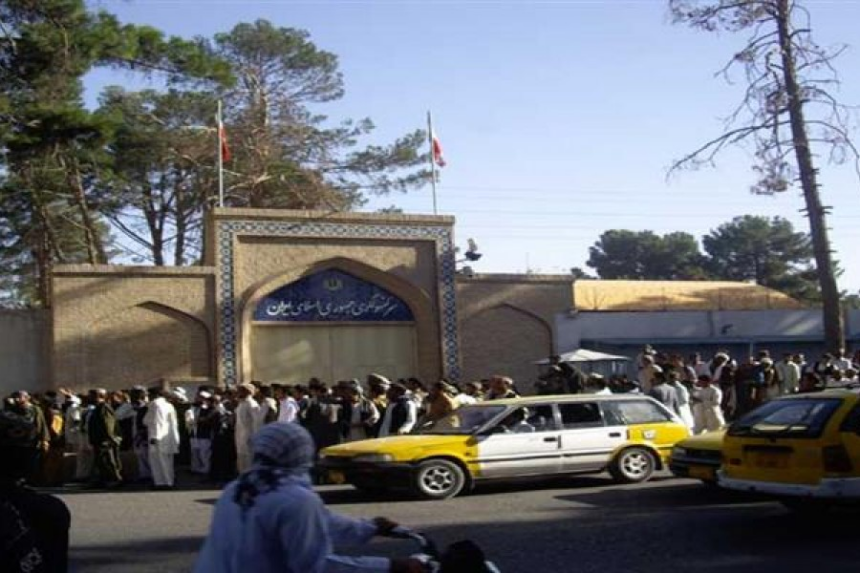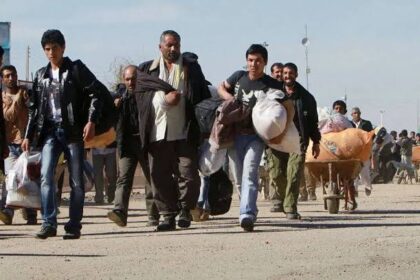RASC News Agency: As Afghanistan plunges deeper into economic collapse and widespread poverty under the Taliban’s misrule, thousands of Afghanistani migrants who had returned from Iran now say they are being driven once more into exile this time by despair, not hope. At the Islam Qala border crossing in western Afghanistan, scenes of human exhaustion unfold daily. Hundreds of returnees, forcibly deported by Iranian authorities, arrive with empty hands and hollow eyes returning to a homeland they describe as incapable of feeding its own people. “We came back to our country,” said one man wearily while standing in line to apply for a new visa, “but there is no work and no bread. We are left with no choice but to leave again.”
The Taliban regime, which has prioritized ideological repression over national rehabilitation, has failed to articulate or implement any coherent strategy to absorb returnees into the shattered economy. Job markets have stagnated, investment has evaporated, and domestic industry remains virtually nonexistent crippled by isolation, corruption, and the regime’s own internal power struggles. In Herat, long lines have formed outside the Iranian consulate where both first-time migrants and recently returned deportees desperately seek entry visas. For all of them, the cause is tragically the same: the absence of employment, food security, and a future within the borders of Taliban-ruled Afghanistan.
Afghanistan’s labor force once a backbone of regional remittances and reconstruction has been systematically dismantled under Taliban control. The regime’s disdain for technocratic governance, its alienation of the international community, and its ban on women’s participation in public life have further exacerbated the crisis, turning the country into an unlivable space for millions. In recent weeks, Iran has intensified its campaign of deportations, expelling thousands of undocumented Afghanistani migrants, despite warnings from humanitarian organizations. While economic pressure is the primary driver of renewed migration, some returnees also cite fear of Taliban reprisals especially those who previously worked with international agencies or civil society groups. This looming threat has prompted many to once again attempt the dangerous journey across the border, with no guarantee of safety or welcome.
The vicious cycle of forced return and re-migration reveals a bleak national reality: in Afghanistan today, bread is a luxury and employment a fading dream. With no viable policies from the Taliban to support repatriated citizens or stimulate job creation, this exodus shows no sign of slowing. Instead, the lines outside consulates grow longer, and the roads out of the country more crowded. For a country stripped of hope and ruled by a regime preoccupied with control rather than care, the future for Afghanistan’s returnees remains heartbreakingly clear they must keep walking.






